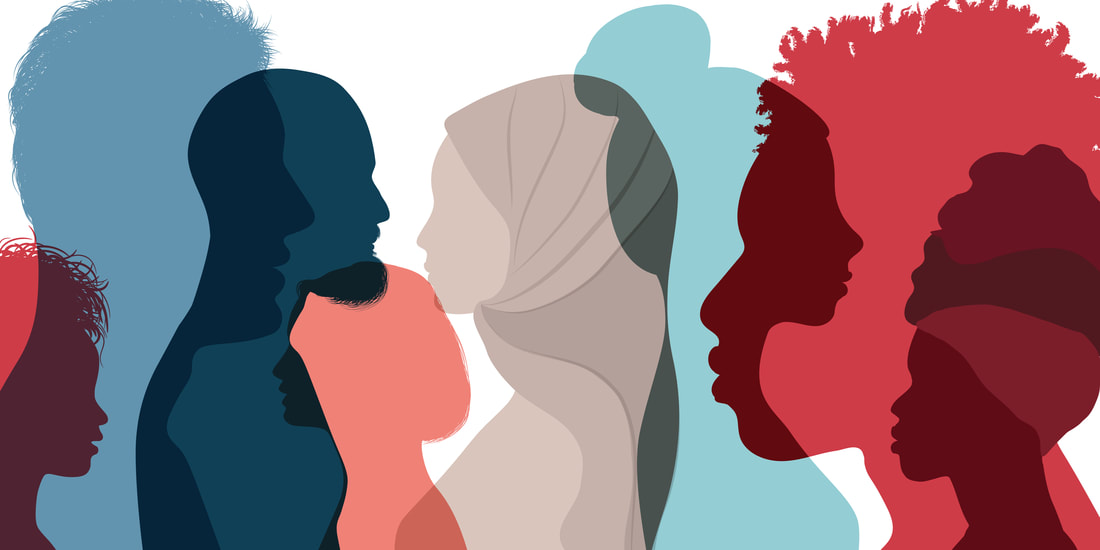|
We are living in a unique cultural moment as we start 2021, with racial inequality and our nation’s division once again on display. This comes following a year in which the loss of Black lives around the nation, often at the hands of police, has sparked rallies and protests that have brought increased attention to the issue of racism and racial injustice in our nation. Governments, corporations, schools, and small businesses have released statements on their commitment to racial justice, and individuals have been called to stand up as allies. So what does that even mean?
What is an ally? So what does it mean to be an ally? Wikipedia defines allyship as “the practice of emphasizing social justice, inclusion, and human rights by members of an ingroup, to advance the interests of an oppressed or marginalized outgroup. Allyship is part of the anti-oppression or anti-racist conversation, which puts into use social justice theories and ideals”. To be a good ally we need to be comfortable challenging our own viewpoints and listening when others correct us. This is especially important when listening to voices of color. Get used to admitting when you are wrong. Being an ally means frequently admitting that your viewpoint has been limited. When corrected by a person of color you may want to say “I hadn’t thought of that before, thanks for helping me to understand” or “I didn’t know that, thanks for being willing to correct me.” The worst thing we can do when confronted with new information is start from a place of defensiveness. Don’t ask “Are you sure?” or tell someone that you disagree right away. Instead, consider responding with, “That’s new information for me” or “I’ll need to look into that more to better understand that, thank you for drawing my attention to that”. The point is to listen and learn. Am I not already an ally? We have a unique position as IDD professionals because being an ally is an essential part of the work that we do for those who have been marginalized as a result of their disabilities. Our job each day is to empower the voices of others, support others in reaching their goals, and advocate to break down barriers. In many ways we can approach social justice work in a similar way. Think about who you can lift up through your engagement in the issue, or how you can be a behind the scenes supporter so that someone with less privilege than you can shine. Becoming a better ally: Diversifying my feed One way that we can be better allies is to ensure that we are exposing ourselves to diverse viewpoints and perspectives. Even if our social media feeds are full of content regarding racial justice, are we listening to diverse voices? Look for people of color to follow on more topics than just racial justice. There are valuable voices out there sharing about beauty, culture, sports, religion, disability and so many other topics. Make sure that white voices aren’t the only ones you are hearing. The same can apply in the TV we watch and books we read. When we seek out ways to be exposed to the culture and experience of people of color, we are better able to understand that our own understandings or perspectives are incomplete and limited to our own experience. “Do the best you can until you know better. Then when you know better, do better.”― Maya Angelou Becoming a better ally: Learning the history (and so much more) History is also a great place to start learning more about how we’ve ended up where we are today. We say Black Lives Matter because since the conception of this nation we have devalued black lives. Learning about the ways that we have done that better equips us to not only have and show compassion for people of color by educating ourselves and breaking down some of our biases, but it also equips us to be better advocates for policies and cultural initiatives that can make positive changes. Resources If you’re looking to learn more and engage with diverse voices, this document is full of amazing resources! bit.ly/ANTIRACISMRESOURCES
0 Comments
Leave a Reply. |
Categories
All
Archives
July 2024
|
We Provide Services 24/7
Administrative Office Hours:
Monday - Friday
8:00 am - 5:00 pm
Phone: 720.684.6102
[email protected]
Fax: 303.261.8216
Mailing Address:
606 Mountain View Ave.
Longmont, CO 80501
Click to set custom HTML
© 2023 All RIGHTS RESERVED PRIVACY POLICY


 RSS Feed
RSS Feed